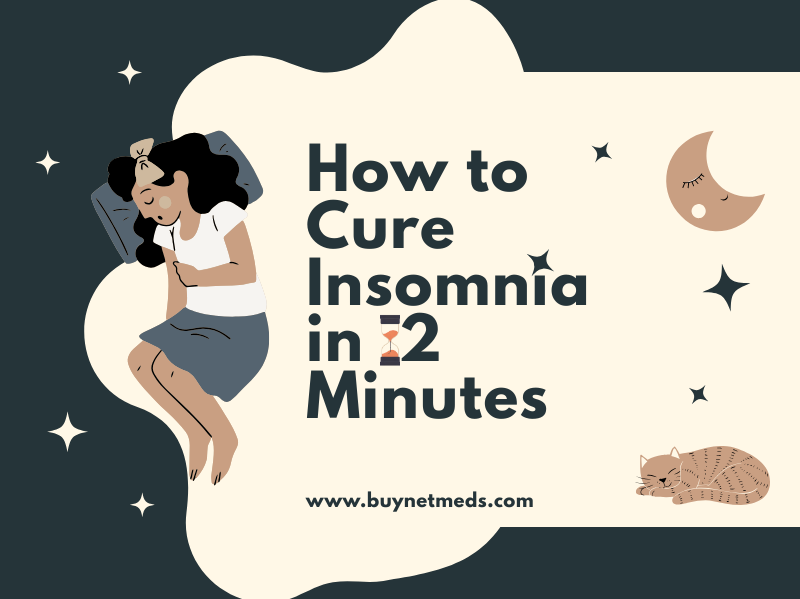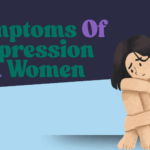Introduction
Losing sleep because of insomnia makes you feel weary, drained, and exposes you to different health problems. The good part is that you can easily overcome it immediately, without using medications. By using this guide, along with some natural remedies, good sleep habits, and a calming technique, you will beat insomnia in only 12 minutes. If you randomly lose sleep or regularly have difficulties sleeping, these steps will assist you in relaxing and getting good sleep tonight.
Understanding Insomnia & Why It Happens
Temporary sleep-related anxiety is possible, but this issue can sometimes progress to a long-term problem due to sleeping or health problems.
Most people see stress, anxiety, and depression becoming more prominent when they are trying to sleep. If you regularly have more caffeine, use TVs or computers close to bedtime, or sleep at different times each day, it can worsen things.
When exposed to blue light, melatonin production is put on hold, and the body’s sleep cycle is affected. Keeping an irregular sleep schedule or getting disturbed while sleeping more than once can contribute to insomnia.
The Science of Falling Asleep Fast
Practising Deep Breathing Relaxes Your Body
Just 12 minutes after relaxing and breathing slowly, your heart and mind begin to calm down.
It helps to relieve stress on both the body and mind.
With progressive muscle relaxation, you will release the muscle tension, and mindfulness meditation will calm your thoughts. Practicing all these methods helps you to relax and rest during sleeping hours.
Supports Getting Adequate Sleep
Herbal remedies may improve your sleep by increasing melatonin and lowering the stress hormone cortisol.
Performs Swiftly and Successfully
Practising it regularly means you can fall asleep easily whenever you get into bed.
The 12-Minute Insomnia Cure (Step-by-Step)

Can it be tough for you to drift off to sleep in the evening? Reduce the light in our surroundings as much as possible and minimize background noise. Relax your mind by taking four minutes of deep breaths. Next, tense and relax your muscles for three minutes to reduce stress. After that, picture a calm and tranquil scene in your mind for two minutes. In the last three minutes, review a kind and reassuring thought a few times. I hope you have a relaxing night of sleep!
Step 1 (0-2 min): Optimise Your Sleep Environment
Avoid using devices that produce blue light the hour before you sleep. Mask anything that makes noise with white noise or a fan, and use your air conditioning if the temperature is between 60 and 67°F (15 to 19°C). Lower the curtains and clean your room often so it is relaxing for sleep. Investing in a bed that promotes rest is very important. A few simple actions can assist you in getting to sleep faster and enjoying better sleep.
Step 2 (2-4 min): 4-7-8 Breathing Technique
Before doing 4-7-8 breathing, get settled in a position that suits you. Put your mouth closed and breathe in through your nose for 4 seconds. Hold your breath for 7 seconds, slowly exhale, and then hold your stretched breath for another 8 seconds. Replay the series of movements 3-4 times in total. As your heartbeat slows, it also calms your mind and lessens anxiety because your oxygen is handled more efficiently. Hearing music is an effective way to get yourself prepared for bed.
Step 3 (4-6 min): Progressive Muscle Relaxation
One way to fall asleep faster is by taking a deep breath. After that, pay attention to letting each section of your body relax one after another. Start by flexing your toes, then let them go loose. Then, simply tighten and then release your calves, thighs and stomach. Next, apply the same technique to your arms, shoulders, neck and hands. Finish by scrunching your face as tightly as possible and then releasing it. If you gradually relax every part of your body, your mind will also relax and let you fall asleep. Lose the tension and appreciate the inner peace afterwards.
Step 4 (6-8 min): Guided Imagery or Counting
When it’s hard to fall asleep because you can’t switch off your mind, concentrate on relaxing thoughts or start counting. Take time to imagine somewhere peaceful, for example, a serene beach or a tranquil forest and try to sense all the details it offers. Try counting down from 100, so that your mind stays busy with the count and not with disturbing ideas. They allow you to move your thoughts away from your problems and assist your brain in relaxing. Remain patient, rest from whatever keeps you up, and gently redirect your mind when it strays. Once you keep at it, you will relax and drift off to sleep.
Step 5 (8-12 min): Sleep Positioning & Mental Shutdown
If you want to fall asleep quickly, lie on your back or side with your body straight. Return to normal breathing, as this method helps before an exam. Take the time to relax your feet and toes, and once you’re comfortable, let go of tension in your calves and throughout your body. Calm down by thinking about a nice image or repeating a soothing phrase regularly. Whenever other ideas arise, simply direct your attention to your breathing. Falling asleep will be easier if your sleeping position is comfortable and you calm your thoughts.
How to Cure Insomnia Naturally Long-Term
Try to teach your body to sleep, wake up at similar times every day, and relax before bedtime. Reduce your caffeine and make sure the room you rest in is peaceful when night comes. Try exercising outdoors and practising stress relief by meditating on your breathing throughout the day.
Ensure that your bedtime hygiene is improved to overcome insomnia in the long run. Go to bed at the same time every day, avoid any caffeine after lunch and try to get enough sunlight during your awake hours.
Sometimes, taking cranberry or melatonin dietary supplements, brewing and enjoying calming chamomile tea and doing morning exercise can help you sleep better at night.
Journaling or engaging in CBT may help you find a new way to think about your sleep problems. Following these tips regularly will help your body sleep normally and have restful sleep.
5. When to Seek Help
Should the natural home remedies fail to remedy your chronic insomnia, you should see a doctor, as the problem may be something else. Should you feel that trouble sleeping is related to depression or a sleep disorder, see your healthcare provider to discuss this. Quick identification of the issue allows you to sleep better and stay healthier.
Conclusion
Simple ways to get rid of insomnia include taking deep breaths, relaxing your muscles and sticking with a relaxing sleep routine to fall asleep in less than 12 minutes. To see lasting progress, rehearse these things regularly. Eventually, a good sleep routine can be supported by avoiding watching TV right before bed, skipping evening coffee, and sticking to the same schedule daily. Keep an eye on your sleeping habits or find out how to improve your sleep; aim to wake up refreshed each morning. Begin tonight and experience the positive effects of resting sleep.



